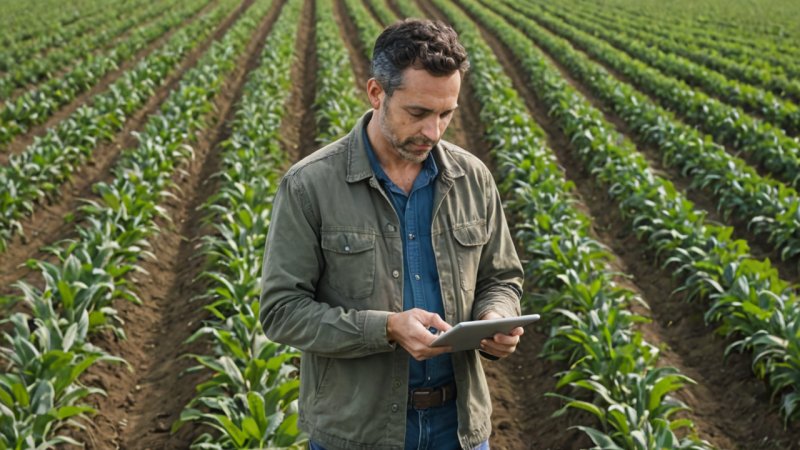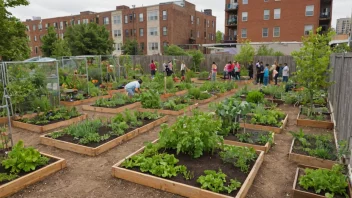What is the role of technology in agriculture?
Technology plays a crucial role in modern agriculture, particularly for small-scale farmers. It encompasses various tools and innovations that enhance productivity, reduce labor, and improve the efficiency of farming practices. From mobile applications providing weather forecasts to precision farming techniques using drones, technology helps farmers make informed decisions that can lead to increased yields and better crop management.
How can mobile applications assist small-scale farmers?
Mobile applications offer a plethora of resources for small-scale farmers. They can access information on best farming practices, pest control, and market prices. Some apps even allow farmers to connect with buyers directly, reducing the need for middlemen and increasing their profit margins. Additionally, apps that provide weather updates help farmers plan their activities based on accurate forecasts.
What are the benefits of using drones in agriculture?
Drones have emerged as a powerful tool for monitoring crops and assessing field conditions. They can capture high-resolution images that help farmers identify problem areas such as pest infestations or nutrient deficiencies. By using drones, farmers can perform targeted interventions, thus saving time and resources. This technology also allows for efficient land surveying and planning.
In what ways can technology improve access to markets for small-scale farmers?
Technology can bridge the gap between small-scale farmers and potential buyers. E-commerce platforms and mobile payment systems enable farmers to sell their produce online, reaching a wider audience. Additionally, social media can be a powerful marketing tool, allowing farmers to showcase their products and connect directly with consumers. This increased market access can lead to higher incomes and economic stability for farmers.
What role does data analytics play in farming?
Data analytics allows farmers to make data-driven decisions that can enhance crop yields and reduce waste. By analyzing data related to soil health, weather patterns, and crop performance, farmers can optimize their practices. For instance, data can help determine the best planting times or the ideal amounts of fertilizers and water needed for specific crops.
How can small-scale farmers benefit from training in technology use?
Training programs focused on technology use equip small-scale farmers with the skills necessary to leverage modern tools effectively. These programs can cover various aspects, such as using mobile apps, understanding data analytics, and operating drones. By providing education and support, farmers can increase their productivity and sustainability, ultimately improving their livelihoods.
What are some examples of successful technology initiatives for small-scale farmers?
Several successful initiatives have emerged globally that demonstrate the impact of technology on small-scale farming. For example, the Farmers' Voice initiative in Uganda uses mobile technology to connect farmers with vital information and resources. In India, the e-Choupal project empowers farmers by providing them with internet access and market information. These initiatives have led to improved crop yields and better economic outcomes for farmers.
How can individuals get involved in supporting technology access for small-scale farmers?
Individuals can play a significant role in supporting small-scale farmers by volunteering with organizations that focus on agricultural technology. They can also advocate for policies that promote technology access and digital literacy in rural areas. Additionally, sharing knowledge and resources through community workshops or online platforms can help empower farmers to utilize technology effectively.
What challenges do small-scale farmers face in adopting technology?
Despite the benefits, small-scale farmers face several challenges in adopting technology. These include limited access to the internet in rural areas, lack of financial resources to invest in new tools, and insufficient training. Addressing these barriers is essential for ensuring that all farmers can benefit from technological advancements in agriculture.
What is the future of technology in small-scale farming?
The future of technology in small-scale farming looks promising, with advancements continuously emerging. Innovations such as artificial intelligence, blockchain for supply chain transparency, and sustainable farming technologies are on the rise. As technology becomes more accessible and affordable, it holds the potential to transform the agricultural landscape, leading to improved food security and economic resilience for small-scale farmers.
In conclusion, technology is playing an increasingly vital role in supporting small-scale farmers. By enhancing productivity, improving market access, and providing valuable data, technology has the potential to make a significant difference in the lives of those engaged in agriculture. As individuals, we can contribute to this positive change by advocating for technology access and supporting initiatives that empower farmers.






